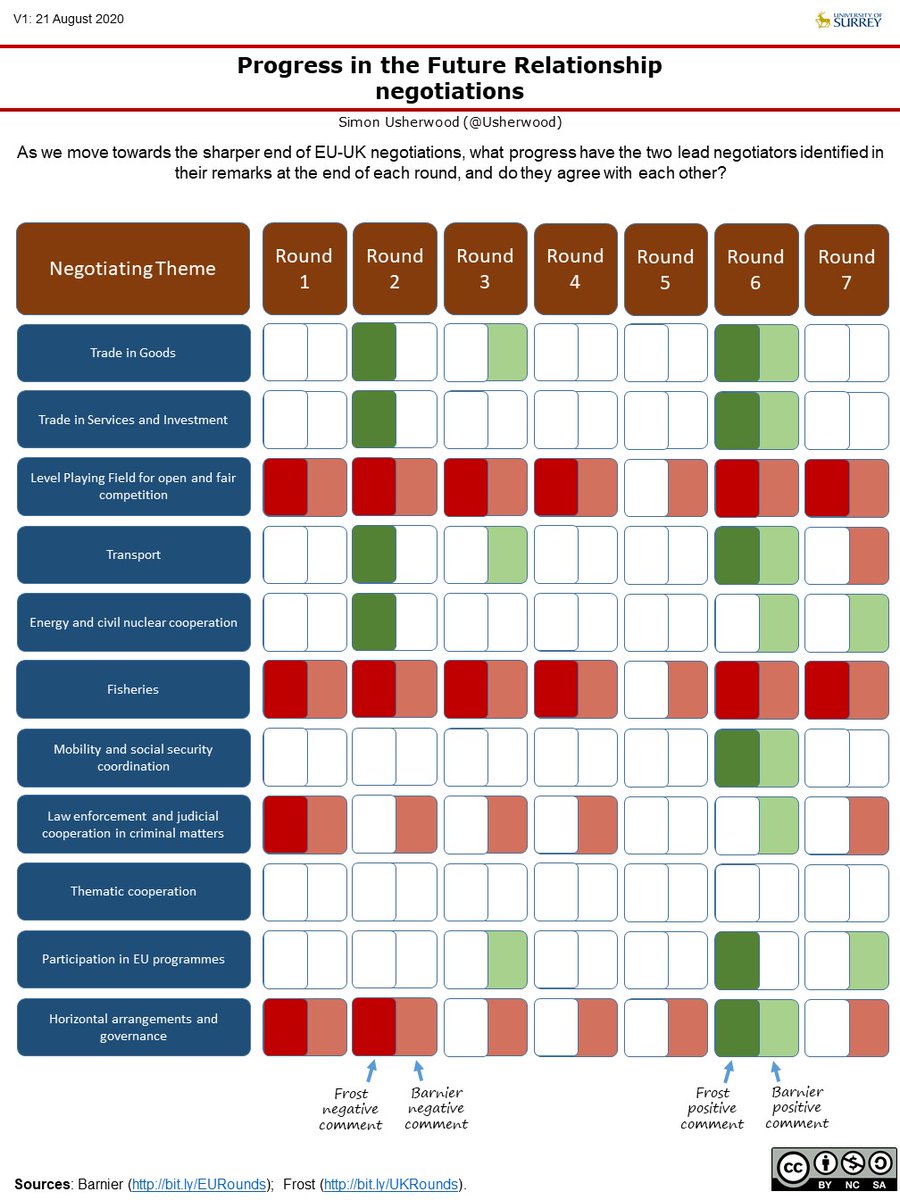
Your regular reminder that Brexit is going badly because the UK has still to decide what the purpose of leaving the EU is
1/
1/
#EUref came about as piece of party mgt by Cameron, rather than as culmination of considered and structured debate about UK's place in the world
2/
2/
Yes, we talked a lot (A LOT) about 'Europe' and the EU, but primarily as a function of lots of other things
A touchstone of dissent, if you will (h/t @PaulAdamTaggart)
3/
A touchstone of dissent, if you will (h/t @PaulAdamTaggart)
3/
Referendum campaigns on both sides were simply about getting people to vote their way, not efforts to set out settled plans of What Comes Next
"Vote for us and everything will be dandy" is not a plan
4/
"Vote for us and everything will be dandy" is not a plan
4/
That might have been alright if post-vote there had been a national discussion on how to proceed in an inclusive manner, but instead the political logic pointed to trying to capture the meaning of it all to serve particular agendas
All very majoritarian, as per
5/
All very majoritarian, as per
5/
However, absent robust parliamentary majorities, May couldn't own the narrative, but nor could any one else
Cue fudging and obfuscation. And battles over dominance that were (again) more about being top dog than any sense of where the UK might be going
6/
Cue fudging and obfuscation. And battles over dominance that were (again) more about being top dog than any sense of where the UK might be going
6/
And so it went until 2019, when someone finally had a solid majority in the Commons to do what they wanted
However, that someone was Johnson, someone not given to strategic vision, but instead to rolling with the good times
7/
However, that someone was Johnson, someone not given to strategic vision, but instead to rolling with the good times
7/
Unfortunately for him, we are already in a situation where good times cannot be built from the objective geopolitical or economic facts.
And maybe not even from the subjective tropes of 'taking back control'
It's a choice from various problematic options
8/
And maybe not even from the subjective tropes of 'taking back control'
It's a choice from various problematic options
8/
Hence the indecision
Which only makes things more difficult down the line
9/
Which only makes things more difficult down the line
9/
And behind all this, we still don't know what Brexit is for, in the sense of having anything like a national consensus, or even just a meaningful government policy.
Crisis management isn't it
10/
Crisis management isn't it
10/
So however the next week and month plays out, I'm confident that we'll still be in the same position we have been since 2016: disappointed and frustrated
11/
11/
That's not good for the UK, for the obvious reason that were going to have a lot more of All This [expansive hand gesture]
But also for a less obvious reason
12/
But also for a less obvious reason
12/
All this is very tiring and annoying, not to mention unstable
So it's still there for the picking
And you might not like who is doing that picking
13/
So it's still there for the picking
And you might not like who is doing that picking
13/
So if you want to avoid a future that you really won't like, then you need need to try to shape the debate, to find common ground, to build something that includes
14/
14/
Because if you don't, then someone else will, and other people might not be as good about those things as you are
/end
/end
• • •
Missing some Tweet in this thread? You can try to
force a refresh







